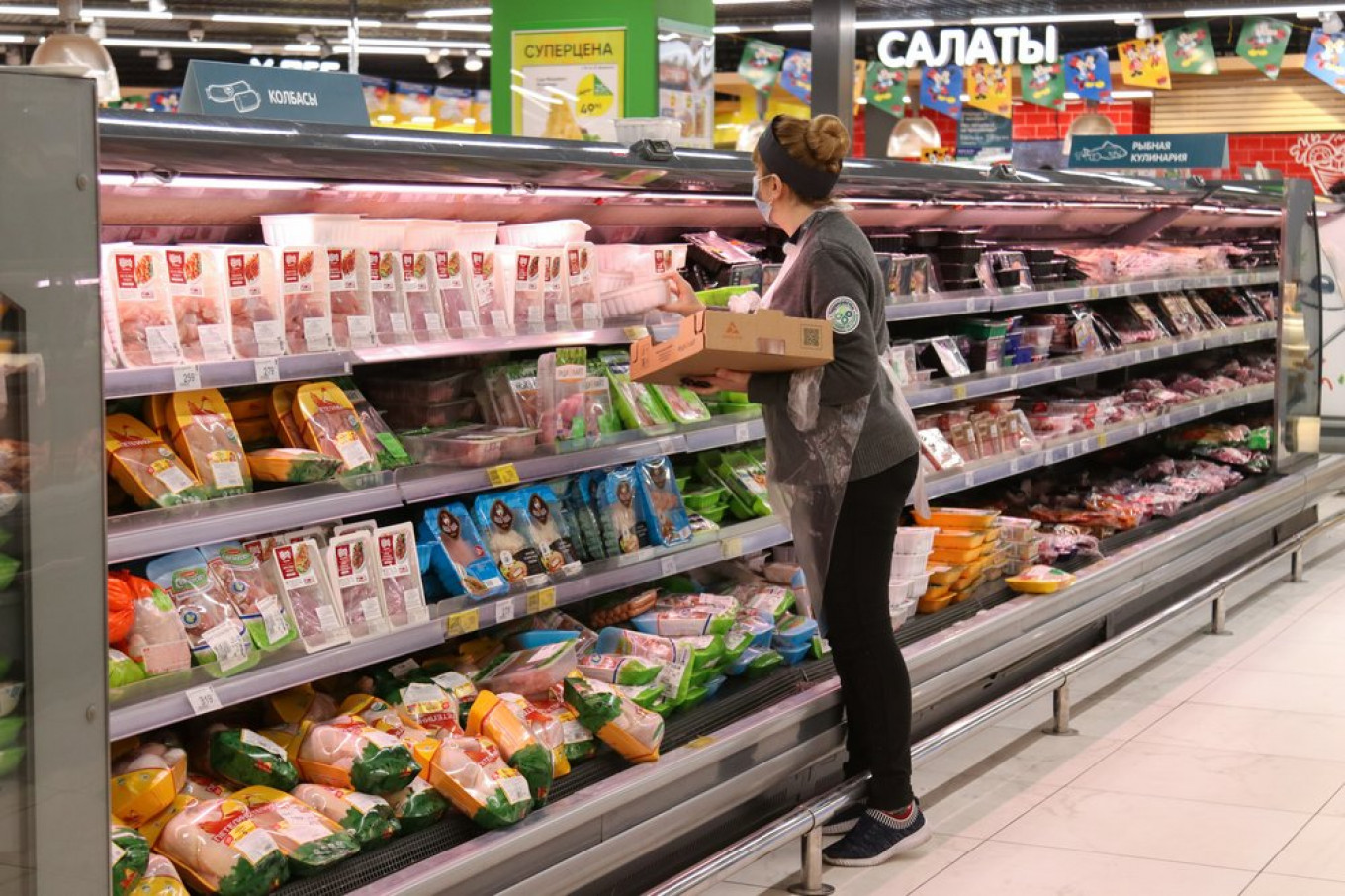
Russia’s Central Bank chief has urged the government to “abandon” price caps on food products “as quickly as possible,” arguing the restrictions could do long-term damage to the Russian economy.
Speaking at a Moscow Exchange forum on Tuesday, Elvira Nabiullina doubled down on her calls for the government to ditch its attempts to control surging food prices by capping retail prices. The interventionist measures “distort prices in the economy and discourage development,” she said.
Russia slapped price caps on certain staple goods, such as sugar and sunflower oil, last December amid surging food prices that threatened to create a wave of discontent ahead of upcoming parliamentary elections later this year.
Inflation has accelerated sharply since the start of 2021, rising to 5.8% in annual terms during March, Russia’s federal statistics service (Rosstat) announced Tuesday.
Prices for food have been rising considerably faster than overall inflation, although the rate of annual increases ticked down from 7.7% in February to 7.6% in March, Rosstat said.
Surging inflation — which is well above the Central Bank’s 4% target — prompted the regulator to raise interest rates to 4.25% in a surprise decision last month. Analysts now expect the bank to weigh up another rise when it meets later this month.
Rosstat also said inflation had started to pick up in non-food goods, putting another potential pressure point on Russian households’ finances over the coming months.
Analysts forecast that the headline inflation rate has probably peaked and should start to decline over the coming months, though the latest fall in the value of the ruble, and expectations for a government spending spree ahead of parliamentary elections in September could see inflation stay above the bank’s target until at least next year.
This is the second time Nabiullina, along with other members of the government’s so-called “liberal” economic bloc such as Audit Chamber head Alexei Kudrin, have criticized the government’s price caps, with the latest statement her strongest yet.
Nabiullina is a former economy minister who is widely respected for the sweeping reforms she has pushed through at the Central Bank since she took the helm in 2013.
Independent economists, retail chains and Russia’s agricultural businesses have also hit out at the price cap policy, saying it threatens shortages, discourages investment in the industry and could disrupt the sector’s impressive development over recent years, which has been buoyed by Russia’s ban on food imports from the EU.